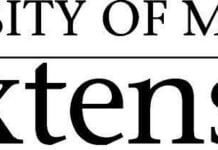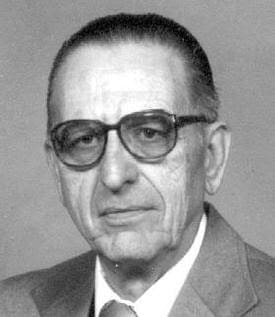Originally published Jan. 25, 1969
In his inaugural address last Monday, the first step in leading the nation and the world “in a high adventure as rich as humanity itself,” President Richard M. Nixon rose above petty partisanship and even above self-seeking nationalism to focus upon goals larger than man and more enduring than time.
In an address which is destined to become a classic of restrained and skillful use of the language, as well as a testament of democracy, the new chief magistrate of the land asked no turning away from the challenges of today’s world as some of his critics expected but instead referred realistically to unfinished tasks while making a strong and simultaneous bid for unity: “To go forward at all is to go forward together.”
His ringing challenge was, “Let us go forward, firm in our faith, steadfast in our purpose, cautious of the dangers but sustained by our confidence in the will of God and the promise of man.”
His supreme goal was clearly outlined as peace – at home and throughout the world through “the decent order that makes progress possible.”
His was a voice of great calm which the world long has awaited. Of course we are not out of the woods nationally or internationally but one could almost sense upon hearing his words a great lessening of tension, an awareness that the hand at the helm of the world’s leading nation is both strong and kind.
We anticipate the philosophy he projected will produce acceleration of efforts toward peace in Vietnam and the Middle East on the part of all interests involved as early progress toward prevention of bloody chaos in the future.
He understands the problems which exist:
“We have found ourselves rich in good but ragged in spirit, reaching with magnificent precision for the moon but falling into raucous discord here on earth. We are caught in war, wanting peace; we are torn by division, wanting unity; we see around us empty lives, wanting fulfillment; we see tasks that need doing, waiting for hands to do them.”
And he understands the answers:
“To a crisis of the spirit we need an answer of the spirit. To find that answer we need only look within ourselves. When we listen to the better angels of our nature, we find that they celebrate the simple things and the basic things such as goodness, decency, love, kindness . . . The simple things are the ones most needed today if we are to surmount what divides us and cement what unite us.”
“To lower our voices would be a simple thing. In these difficult years, American has suffered from a fever of worlds, from inflated rhetoric that promises more than it can possibly deliver, from angry rhetoric that fans discontents into hatred . . . “
This is the still, small voice which has been speaking in determined fashion many years but now, through the skill of the man Nixon, at last is being heard.
As we give our support to this voice of greatness it will mount in magnitude to override all the clamor of disorder and distortion which has disrupted our time and progress surely will follow through that “decent order” to which we have been summoned.
This is a noble challenge. As individual Americans summoned to greatness, let us respond with enthusiasm.
Dignity of work . . .
Work is a sacred gift which man ought to cherish and use as the finest birthright ever received.
This sentiment was expressed vividly in a recent address by the Rev. A.J. McClung, PhD, Rock Island, Ill., former pastor of First and Calvary Presbyterian church, Springfield, at a meeting of the Springfield Rotary Club.
“I’d rather wear out than rust out,” said Dr. McClung at age 80. “I could sit down and fold my hands but I like the dignity of work and of trying to accomplish something. It’s one of the blessed things we have . . . “
If more people would approach their daily labor in the fashion, in the knowledge that it is a blessed gift of God and not a curse to be avoided, the gross national product would multiply at a fantastic rate and the rewards in personal satisfaction and the sense of individual worth and dignity would be immeasurable.
If more people approaching retirement age would adopt this philosophy and seek productive outlets for their remaining skills and continuing knowledge, ours would be a richer, healthier, happier world.
We could do with less complaining and more rejoicing – and the privilege of working is cause for rejoicing.
Marvin VanGilder was an editor with The Carthage Press from the 1950s until the 1970s and a writer and columnist for The Press from the 1980s until his death on July 11, 2010.















